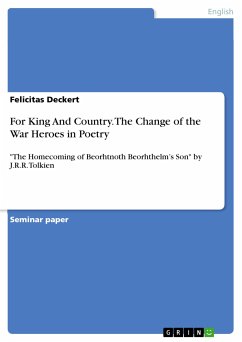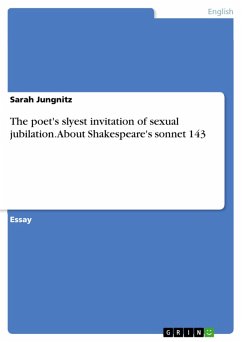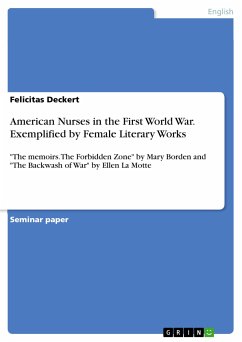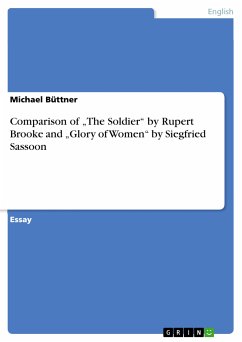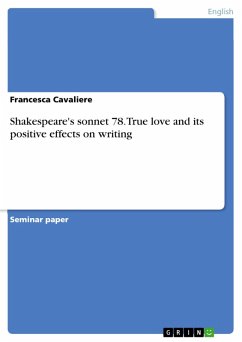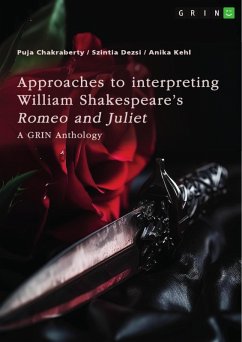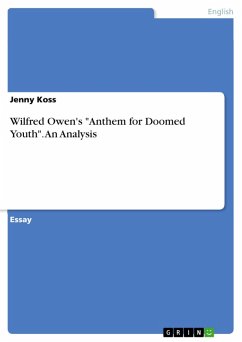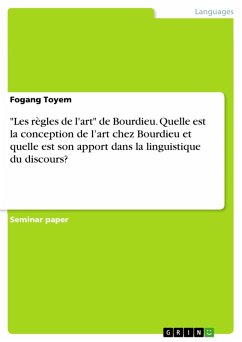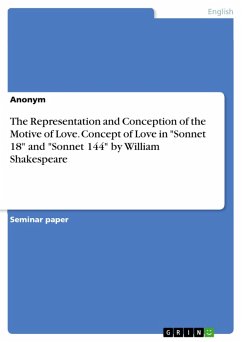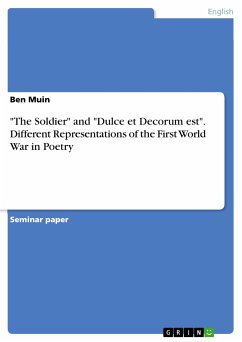
"The Soldier" and "Dulce et Decorum est". Different Representations of the First World War in Poetry (eBook, PDF)

PAYBACK Punkte
0 °P sammeln!
Seminar paper from the year 2018 in the subject English Language and Literature Studies - Literature, grade: 1,3, University of Wuppertal, course: Introduction to Literary Studies, language: English, abstract: Two of the most famous 'war poets' of the First World War are Wilfred Owen and Rupert Brooke. At first glance both poets seem to have many similarities: Both, Owen and Brooke, were civilians, who joined the army at a young age, both wrote poetry inspired by their war experiences, and both died during the war. But looking at the content of their poems the differences are significant, almo...
Seminar paper from the year 2018 in the subject English Language and Literature Studies - Literature, grade: 1,3, University of Wuppertal, course: Introduction to Literary Studies, language: English, abstract: Two of the most famous 'war poets' of the First World War are Wilfred Owen and Rupert Brooke. At first glance both poets seem to have many similarities: Both, Owen and Brooke, were civilians, who joined the army at a young age, both wrote poetry inspired by their war experiences, and both died during the war. But looking at the content of their poems the differences are significant, almost as if both poets witnessed different wars: While Brooke's poems glorify war and the heroic deeds of the soldiers, Owen's poetry tries to show the reality of war and trench warfare. As both poets are examples for the changing perception of war in early and later 'war poetry', so are their poems "The Soldier" and "Dulce et Decorum est" examples of how those different mentalities are represented in poetry. This paper focuses especially on the form of both poems, as both use the form of the sonnet to achieve, but with very different results.
Dieser Download kann aus rechtlichen Gründen nur mit Rechnungsadresse in A, B, BG, CY, CZ, D, DK, EW, E, FIN, F, GR, HR, H, IRL, I, LT, L, LR, M, NL, PL, P, R, S, SLO, SK ausgeliefert werden.




